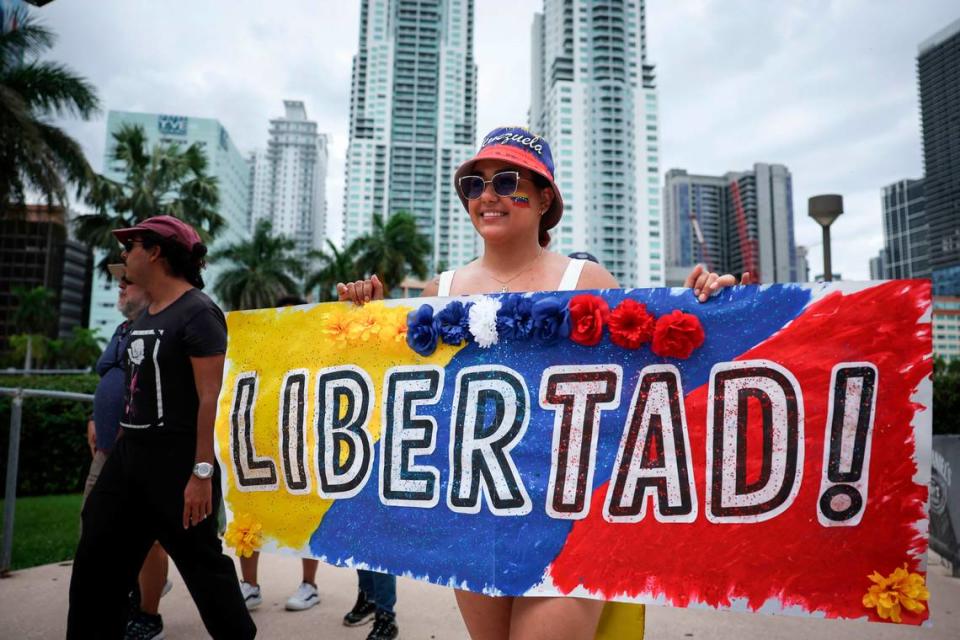In a widely expected decision Venezuela’s Supreme Tribunal, which has often been accused of serving as a rubber stamp and repression tool for the regime, ruled that strongman Nicolás Maduro was the winner of last month’s presidential election.
The highest court said the evidence presented to the court by Maduro validated the pronouncement made on election night by the National Electoral Council that the strongman was reelected with nearly 52% of the vote.
The court “certifies in an unobjectionable manner the expert material presented and validates the results issued by the [electoral council] establishing that Nicolás Maduro was elected,” said tribunal president Caryslia Beatriz Rodríguez. “The CNE is urged to publish the final results in the official gazette.”
Rodriguez said the decision was made with the help of qualified national and international experts, but their identities were not disclosed.


In addition, Rodriguez announced that the court would “urgently” send the information gathered against the Venezuelan opposition, accusing its members of generating “anxiety” in the population by accusing Maduro of committing electoral fraud.
The ruling in favor of Maduro was widely expected by a large part of the Venezuelan population in view of the top court’s lack of independence. The court has repeatedly been accused by multilateral organizations of acting more as an instrument of political persecution than as an independent body dedicated to the administration of justice.
A few hours before the court ruled, the United Nations Human Rights Council issued another warning through its X account about the court’s lack of independence, highlighting a previous report from its independent international mission on Venezuela, which concluded that the court was part of the repressive machinery of the State and that the government “exercises undue interference in the court’s decisions through direct messages to judges and public statements issued by Maduro” and other senior members of his regime.
The Venezuelan top court issued the ruling 22 days after Maduro asked it to decide the dispute over the elections.
Opposition leaders said Maduro was not really fooling anyone by taking the issue to the government’s top court, describing the move as a ploy to validate the electoral council’s pronouncement given that the regime was unable to provide the official vote tallies. The tallies, known as actas, confirmed that opposition leader Edmundo González was the winner of the July 28 election.
The regime has so far failed to present the actas confirming Maduro’s victory despite numerous requests from the international community to do so, in contrast to the opposition, which has presented the tallies from more than 80% of the voting centers confirming that Gonzalez defeated Maduro by margin of more than 2-1.
Speaking out through his X account, Gonzalez rejected the decision and questioned the legitimacy of the court.
“Sovereignty resides untransferably in the people,” the opposition leader said. “The institutions of the state emanate from the popular sovereignty and are subject to it. They will not usurp the truth.”







